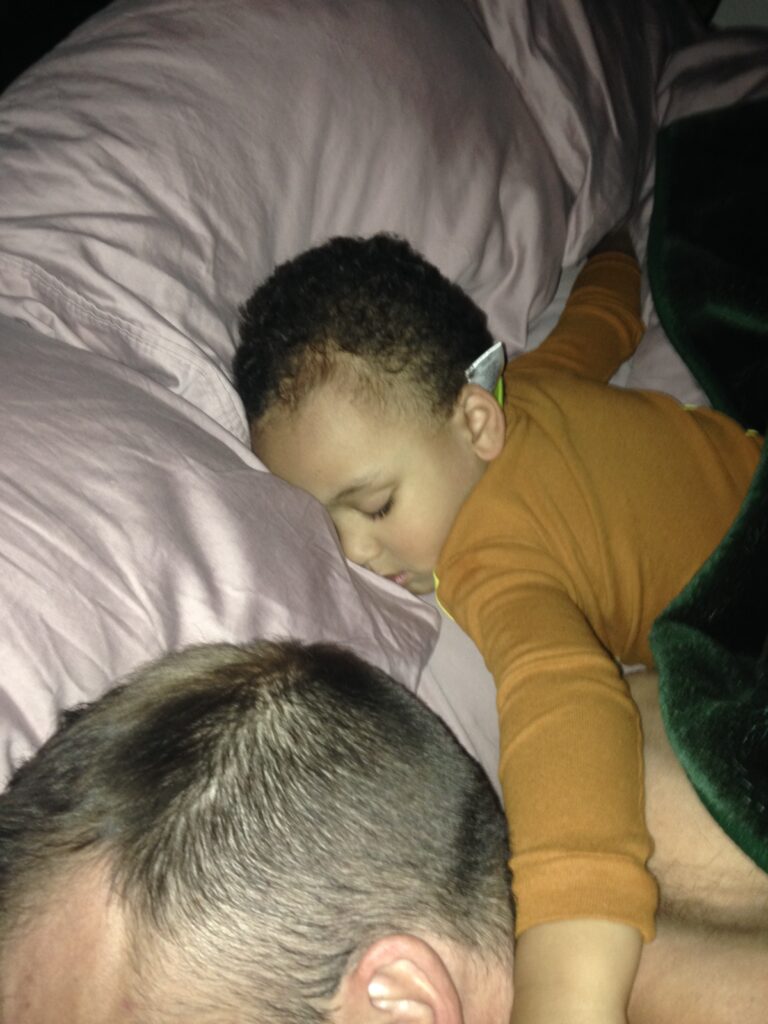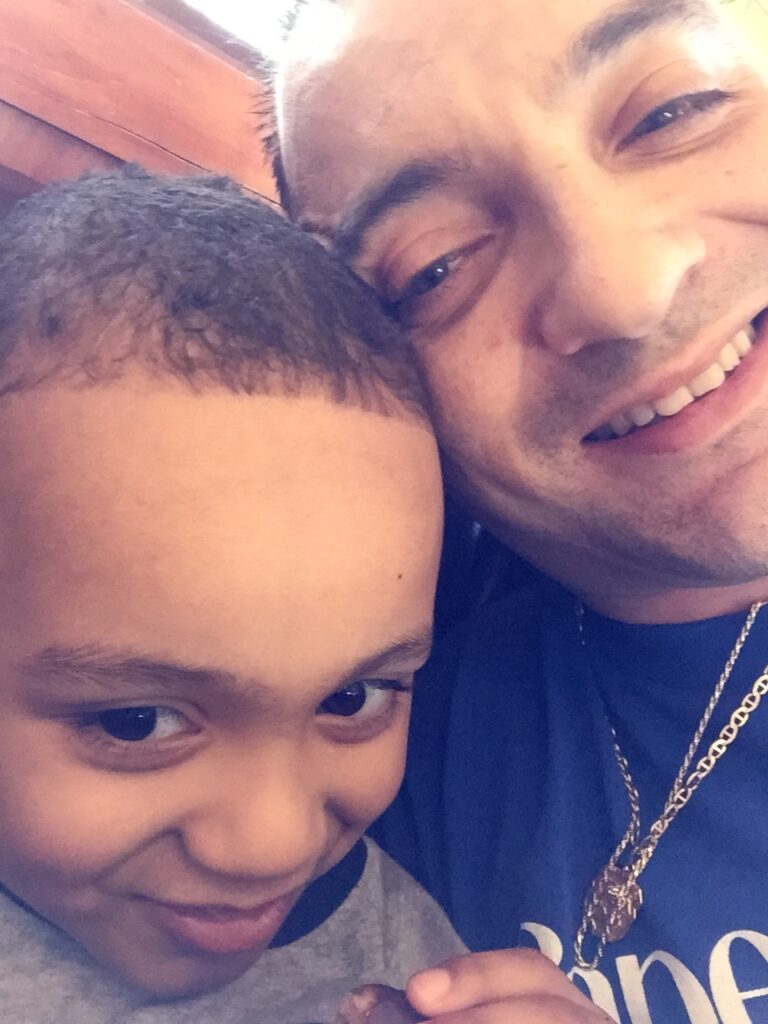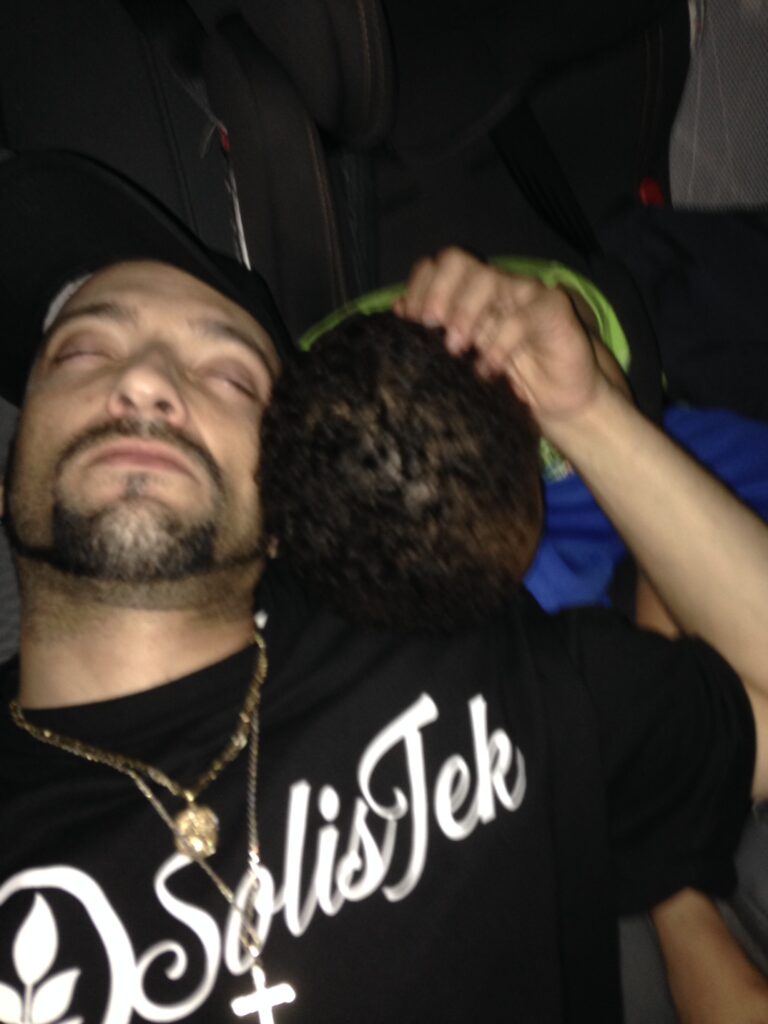9.32 Particular Rights – Fourteenth Amendment –
Interference with Parent / Child Relationship
Due Process Violation of Parental Rights
I Introduction
Parents and children possess a constitutionally protected liberty interest in companionship and society with each other. Smith v. City of Fontana, 818 F.2d 1411, 1418 (9th Cir. 1987), overruled on other grounds by Hodgers-Durgin v. de la Vina, 199 F.3d 1037 (9th Cir. 1999) (en banc). This liberty interest is rooted in the Fourteenth Amendment, which states in relevant part that “[n]o State shall . . . deprive any person of life, liberty, or property, without due process of law.” U.S. Const. amend. XIV, § 1.
The protected liberty interest is independently held by both parent and child. City of Fontana, 818 F.2d at 1418. A parent’s right includes a custodial interest (but only while the child is a minor), and a companionship interest (even after a child reaches the age of majority). Id. at 1419; see, e.g., Strandberg v. City of Helena, 791 F.2d 744, 748 n.1 (9th Cir. 1986) (recognizing that parents of deceased 22-year-old son could not allege constitutional right to parent a minor child, but could claim violation of right to companionship and society). Children, including adult children, may claim a violation of their right to familial association, but that right includes only a companionship interest. City of Fontana, 818 F.2d at 1419; Moreland v. Las Vegas Metro. Police Dep’t, 159 F.3d 365, 371 (9th Cir. 1998). State interference with these liberty interests may give rise to a Fourteenth Amendment due process claim that is cognizable under 42 U.S.C. § 1983. Kelson v. City of Springfield, 767 F.2d 651, 654 (9th Cir. 1985). Parents and children raising such claims are alleging a deprivation of their own liberty rights; they are not asserting the rights of the decedent or injured child or parent. Id. at 653 n.2.
The mere existence of a biological link between parent and child is not a sufficient basis to support a Fourteenth Amendment claim for loss of familial relationship rights. Wheeler v. City of Santa Clara, 894 F.3d 1046, 1058 (9th Cir. 2018). In order to bring a Fourteenth Amendment due process claim, the parent and child must have relationships
(click here to see what the state is fucking up with negligence and hate and vindictiveness)
“which reflect some assumption ‘of parental responsibility.’” Kirkpatrick v. County of Washoe, 843 F.3d 784, 789 (9th Cir. 2016) (en banc) (“It is when an unwed father demonstrates a full commitment to the responsibilities of parenthood by coming forward to participate in the rearing of his child that his interest in personal contact with his child acquires substantial protection under the due process clause.”) (internal quotation marks and brackets omitted). Parents can bring a Fourteenth Amendment due process claim only if they demonstrate “consistent involvement in a child’s life and participation in child-rearing activities.” Wheeler, 894 F.3d at 1058. Children must make the same showing. See id. (holding relationship between child adopted as infant and biological mother insufficient for child to bring Fourteenth Amendment loss of companionship claim).
Other familial relationships may not give rise to a protectable liberty interest. The extent to which grandparents have such an interest has not been decided, although a noncustodial grandparent generally does not have a protectable interest. See Miller v. California, 355 F.3d 1172, 1176 (9th Cir. 2004). Siblings cannot bring claims under the Fourteenth Amendment for the deprivation of their liberty interest arising out of their relationship with their sibling. Ward v. City of San Jose, 967 F.2d 280, 284 (9th Cir. 1991), as amended on denial of reh’g (June 16, 1992).
II. Two Types of Claims: Procedural and Substantive
A claim of interference with the parent/child relationship in violation of the Fourteenth Amendment may be brought as either a procedural due process claim or a substantive due process claim. See City of Fontana, 818 F.2d at 1419–20.
A procedural due process claim may arise when the state interferes with the parent-child relationship for the purpose of furthering a legitimate state interest. See id. at 1419. Thus, “where the best interests of the child arguably warrants termination of the parent’s custodial rights, the state may legitimately interfere so long as it provides ‘fundamentally fair procedures.’” Id. (quoting Santosky v. Kramer, 455 U.S. 745, 754 (1982)).
A substantive due process claim may arise when the state interferes with the parent-child relationship “for purposes of oppression.” Id. (quoting Daniels v. Williams, 474 U.S. 327, 331 (1986)). For instance, “the state has no legitimate interest in interfering with this liberty interest through the use of excessive force by police officers.” Id. at 1419–20. Each type of claim is evaluated under a distinct standard.
A. Standard for Procedural Due Process Violation
Procedural due process claims typically arise when a state official removes a child from a parent’s care. For such claims, “[t]he Fourteenth Amendment guarantees that parents will not be separated from their children without due process of law except in emergencies.” Rogers v. County of San Joaquin, 487 F.3d 1288, 1294 (9th Cir. 2007) (quoting Mabe v. San Bernardino Cnty., Dep’t of Pub. Soc. Servs., 237 F.3d 1101, 1107 (9th Cir. 2001)). Removing a child from a parent’s custody violates the Fourteenth Amendment unless the removal (1) is authorized by a court order (typically a warrant); or (2) is supported by “reasonable cause to believe that the child is in imminent danger of serious bodily injury,” and the scope of intrusion does not extend beyond that which is reasonably necessary. Id. (quoting Mabe, 237 F.3d at 1106). Even if the removal is pursuant to a court order, the right may be violated if the court order was obtained through judicial deception, that is, if a plaintiff alleges “(1) a misrepresentation or omission (2) made deliberately or with a reckless disregard for the truth, that was (3) material to the judicial deception.” David v. Kaulukukui, 38 F.4th 792 (9th Cir. 2022). “A misrepresention or omission is material if a court would have declined to issue the order had [the defendant] been truthful.” Id. The “mere threat of separation” is insufficient to give rise to a Fourteenth Amendment claim “based on a minor being separated from his or her parents.” Dees v. County of San Diego, 960 F.3d 1145, 1152 (9th Cir. 2020).
Removing children from their parents’ custody without court authorization is permissible when officials have reasonable cause to believe that the children are at imminent risk of serious bodily injury or molestation in the time it would take them to get a warrant. Rogers, 487 F.3d at 1294–95; see also Wallis v. Spencer, 202 F.3d 1126, 1138 (9th Cir. 2000). Serious allegations of abuse must be investigated and corroborated before they will give rise to “a reasonable inference of imminent danger sufficient to justify taking children into temporary custody.” Demaree v. Pederson, 887 F.3d 870, 879 (9th Cir. 2018) (per curiam) (internal quotation marks omitted). There must be “specific, articulable evidence that provides reasonable cause to believe that a child is in imminent danger of abuse.” Wallis, 202 F.3d at 1138; see also Sjurset v. Button, 810 F.3d 609, 622 (9th Cir. 2015) (holding officials’ belief of imminent danger objectively reasonable where mother who had tested positive for drugs and had previously been convicted of child endangerment prevented officers from verifying child’s safety, and officials could not have obtained court order for 36 hours).
Conversely, removing children from their parents’ custody without a court’s authorization can give rise to a violation of a liberty interest when there is no imminent risk of physical or sexual abuse. Demaree, 887 F.3d at 879 (holding officials unconstitutionally removed children from parents’ custody because officials’ fear of “sexual exploitation” based on nude photos of children was not objectively reasonable since photos were not distributed, did not depict sexual conduct, and did not reflect risk of physical sexual abuse). Evidence that children are malnourished, their home is disorderly or unsanitary, or that their parents lack health insurance or fail to provide them daycare does not constitute exigent circumstances. Rogers,487 F.3d at 1296.
B. Standard for Substantive Due Process Violation
A substantive due process claim of impermissible interference with familial association arises when a state official harms a parent or child in a manner that shocks the conscience. Porter v. Osborn, 546 F.3d 1131, 1137 (9th Cir. 2008). “[O]nly official conduct that ‘shocks the conscience’ is cognizable as a due process violation. Id. (quoting Cnty. of Sacramento v. Lewis, 523 U.S. 833, 846 (1998)).
A Fourteenth Amendment substantive due process claim is distinct from a claim arising under the Fourth Amendment. See Lewis, 523 U.S.at 843. A Fourth Amendment excessive force claim requires the victim to establish that the officer’s conduct was objectively unreasonable. Ochoa v. City of Mesa, 26 F.4th 1050, 1056 (9th Cir. 2022). But that Fourth Amendment standard is less demanding than the “shocks the conscience” standard that applies to substantive due process familial association claims under the Fourteenth Amendment brought by the parent or child of the victim. See id. at 1056-57. Accordingly, “it may be possible for an officer’s conduct to be objectively unreasonable under the Fourth Amendment yet still not infringe the more demanding standard that governs substantive due process claims under the Fourteenth Amendment.” Id. at 1057(internal quotation marks and brackets omitted).
“There are two tests used to decide whether officers’ conduct ‘shocks the conscience.’” Id. at 1056. A state official’s conduct may shock the conscience if (1) the official acted with a “purpose to harm” the victim for reasons unrelated to legitimate law enforcement objectives; or (2) the official acted with “deliberate indifference” to the victim. Porter, 546 F.3d at 1137. Which test applies turns on the specific circumstances of the underlying events in each case. If the encounter at issue escalated so quickly that the officer had to make a snap judgment, the plaintiff must show the officer acted with a “purpose to harm.” See id. However, if the situation evolved within a time frame that allowed officers to reflect before acting, the plaintiff must show the officer acted with “deliberate indifference.” See id.
lets pause to learn more about deliberate indifference click here to educated yourselves
now lets continue shall we……………
- Purpose to Harm Standard
The Supreme Court developed the purpose-to-harm standard in recognition that not every harm caused by government officials gives rise to a Fourteenth Amendment claim. See Lewis, 523 U.S. at 848–49. For instance, “when unforeseen circumstances demand an officer’s instant judgment, even precipitate recklessness fails to inch close enough to harmful purpose” so as to shock the conscience. Id. at 853. These circumstances may include high speed police chases, see id. at 855, responding to a gunfight in a crowded parking lot, Moreland v. Las Vegas Metro. Police Dep’t, 159 F.3d 365, 368 (9th Cir. 1998), and other situations requiring split-second decisions, where the officer did not have a “practical” opportunity for “actual deliberation,” Lewis,523 U.S. at 851.
In Porter v. Osborn, 546 F. 3d 1131 (9th Cir. 2008), the Ninth Circuit held that the “purpose to harm” standard applied to a Fourteenth Amendment familial association claim brought by the surviving parents of a motorist who was shot and killed, “[d]ue to the rapidly escalating nature of the confrontation” with the motorist, such that actual deliberation was not practical. Id. at 1137. Similarly, in Ochoa v. City of Mesa, 26 F.4th 1050 (9th Cir. 2022),the Ninth Circuit applied the purpose to harm standard to a familial association claim brought by the surviving relatives of a suspect who was fatally shot after he took a step towards officers while carrying a knife.
By contrast, when an officer shot twelve rounds at an occupied vehicle even though the car presented no immediate threat, the Ninth Circuit held that the jury could have reasonably concluded that the officer “acted with the purpose to harm unrelated to a legitimate law enforcement objective,” and upheld the jury’s verdict for the suspect’s surviving children. A.D. v. Cal. Highway Patrol, 712 F.3d 446, 458 (9th Cir. 2013).
Zion v. County of Orange exemplifies the distinction between legitimate and illegitimate official conduct. The officer in Zion did not violate the Fourteenth Amendment when he emptied his weapon at a suspect who was fleeing after stabbing an officer because the officer had no time for reflection, and “[w]hether excessive or not, the shootings served the legitimate purpose of stopping a dangerous suspect.” 874 F.3d 1072, 1077 (9th Cir. 2017). However, there was a genuine issue of fact as to whether the officer acted with a purpose to harm when, after the suspect was lying on the ground in a fetal position, the officer walked around in a circle for several seconds, then took a running start and stomped on the suspect’s head three times. See id. (reversing summary judgment in favor of officer defendant).
- Deliberate Indifference Standard
The deliberate indifference standard applies in situations where the officers who caused the harm to the parent or child acted (or failed to act) in a situation when “actual deliberation is practical.” Lewis, 523 U.S. at 851. When officials have “time to make unhurried judgments,” and “extended opportunities to do better,” but unreasonably allow harm to occur, then their “protracted failure even to care” can shock the conscience, thus giving rise to a substantive due process claim. Id. “Actual deliberation” requires a longer period of time than “deliberation” as that term is used in homicide law. See id. at 851 n.11 (“By ‘actual deliberation,’ we do not mean ‘deliberation’ in the narrow, technical sense in which it has sometimes been used in traditional homicide law.”). Because it shocks the conscience for officials to cause harm to a parent or child with deliberate indifference, a substantive due process claim of impermissible interference with familial association can arise in these circumstances. Porter, 546 F.3d at 1137. 
The deliberate indifference standard often applies in cases of state officials’ inaction or failure to protect. Although the Fourteenth Amendment’s due process clause generally does not create an affirmative right to governmental aid, see DeShaney v. Winnebago Cnty. Dep’t of Soc. Servs., 489 U.S. 189, 195–96 (1989), a state actor’s failure to protect “may give rise to a § 1983 claim under the state-created danger exception when the state affirmatively places the plaintiff in danger by acting with deliberate indifference to a known or obvious danger,” Herrera v. Los Angeles Unified Sch. Dist., 18 F.4th 1156, 1158 (9th Cir. 2021) (internal quotation marks omitted). A state actor’s failure to protect may also create liability under § 1983 if the state “takes a person into its custody and holds him there against his will.” DeShaney, 489 U.S. at 199–200. The types of custody giving rise to the duty to protect are “incarceration, institutionalization, or other similar restraint of personal liberty.” Id. at 200.
The deliberate indifference standard as it applies in cases alleging a deprivation of a familial relationship is a subjective standard. For a defendant to act with deliberate indifference, he must “recognize the unreasonable risk and actually intend to expose the [victim] to such risks without regard to the consequences to the [victim].” Herrera, 18 F.4th at 1158(internal quotation marks and brackets omitted). “Ultimately, a state actor needs to know that something is going to happen but ignore the risk and expose the [victim] to it.” Id. at 1158–59 (internal quotation marks and brackets omitted).
Herrera shows how the subjective standard applies to parents’ claim for deprivation of familial relationship. In Herrera, parents claimed that a school aide’s failure to protect their autistic child from drowning in a park swimming pool during a school outing was actionable under the state-created danger exception, and gave rise to a § 1983 claim for deprivation of a parent-child relationship in violation of the Fourteenth Amendment. See id. at 1161. The Ninth Circuit held that the school aide had not acted with deliberate indifference because he was unaware of any immediate danger to the child (mistakenly thinking the child was in the locker room rather than in the pool), and there was therefore no evidence that the aide subjectively recognized the risk to the child. See id. at 1162. Accordingly, no reasonable jury could conclude that the parents’ Fourteenth Amendment rights were violated. See id.; see also Patel v. Kent Sch. Dist., 648 F.3d 965, 971–72 (9th Cir. 2011) (holding that schoolteacher did not violate student’s Fourteenth Amendment rights by failing to protect the student from having sex with another student in restroom, because there was no proof that teacher knew about any immediate risk).
In cases where the victim is a detainee and the plaintiff is the victim or the victim’s estate, the Ninth Circuit has applied an objective standard for the deliberate indifference inquiry. See Castro v. County of Los Angeles, 833 F.3d 1060, 1070-71 (9th Cir. 2016) (en banc). Under that standard, a pretrial detainee can maintain a Fourteenth Amendment claim by proving the conduct was objectively unreasonable. See id. at 1071. The objective standard has been extended to cases where the detainee is in an immigration facility, see Roman v. Wolf, 977 F.3d 935, 943 (9th Cir. 2020) (per curiam), and where the detainee alleges that state officials failed to provide medical care, see Gordon v. Cnty. of Orange, 888 F.3d 1118, 1122-24 (9th Cir. 2018). See Instructions 9.29 (Particular Rights—Fourteenth Amendment—Pretrial Detainee’s Claim of Excessive Force), 9.30 (Particular Rights—Fourteenth Amendment— Pretrial Detainee’s Claim re Conditions of Confinement/Medical Care), 9.31 (Particular Rights—Fourteenth Amendment—Pretrial Detainee’s Claim of Failure to Protect), and 9.32A (Particular Rights—Fourteenth Amendment—Due Process—Civil Commitment).
In considering whether the objective or subjective standard applied, Herrera discussed the objective standard as applied in Castro and its progeny, but concluded that the subjective standard for deliberate indifference applied because the victim in the case was not a detainee. See 18 F.4th at 1160 (“Erick was not detained at the time of his death . . . . We therefore apply a purely subjective standard, consistent with our precedent, requiring the plaintiff to show that the state actor recognized an unreasonable risk and actually intended to expose the plaintiff to such risk.”). Herrera’s analysis suggests that the objective standard applies in a case alleging a deprivation of familial association when the victim is a detainee. However, the Ninth Circuit has not squarely addressed that question. Revised Sept. 2022 cited https://www.ce9.uscourts.gov/jury-instructions/node/715 and can be downloaded here
read another amendment section under the 5th amendment below
Amdt 5.4.5.6.2 Parental and Children’s Rights – under the Fifth Amendment:
read MORE here about Father’s Rights and Parents Rights THE CONSTITUTIONAL FRAMEWORK OF FATHERS’ RIGHTS
We also have the GrandParents Rights To Visit Family Law Packet including the FL-375 Form Needed to File
to fully understand how any of your actions will be used against you as government officials please read more here. https://goodshepherdmedia.net/9-32-particular-rights-fourteenth-amendment-interference-with-parent-child-relationship/ about your vindictiveness to an oppositional stance to your incompetance has caused you to leave law and become victims of your own vengeance and incompetence and failure to do the right thing, God is KING, now you punitive measures to control someone who clearly and factually can disapprove all your actions and understands more of RIGHT VS WRONG than you all. Children deserve parents who actually have the Childs best interest which in the eyes of the state and common good https://goodshepherdmedia.net/9-32-particular-rights-fourteenth-amendment-interference-with-parent-child-relationship and commonly morally conscious and good people NOTHING HAS CHEANGED AND REMAINS: safety, well-being, sexual safety, health and education!
Leaving my child with a wanted fugitive sex offender and prosecuting me for calling you dumb fucking lazy cops in good faith phone calls, what makes them good faith phone calls you may ask? Well it becomes good faith and constitutionally protected speech when its regarding filing charges or protecting my son or having the Judges orders adhered to, the fact that after you hang up or get frustrated with me i call you names does not constitute any law violations, you have a duty to protect and to serve. (all recorded more recordings to be published for the TORT!) some of your behaviors have become criminal and for government officials and law enforcement to become criminals just to keep a sex offender in the home of a child that a judge order to be safe from and to come after the father who demands his child is safe makes you criminals and you will be held accountable!
CLICK ANY PHOTO TO TAKE YOU TO THE LOVE OF FATHER & SON PAGE
a TRUE STORY OF DEPRIVATOIN OF RELATIONSHIP PAIN
To Learn More…. Read MORE Below and click the links
Learn More About True Threats Here below….
We also have the The Brandenburg v. Ohio (1969) – 1st Amendment
CURRENT TEST = We also have the The ‘Brandenburg test’ for incitement to violence – 1st Amendment
We also have the The Incitement to Imminent Lawless Action Test– 1st Amendment
We also have the True Threats – Virginia v. Black is most comprehensive Supreme Court definition – 1st Amendment
We also have the Watts v. United States – True Threat Test – 1st Amendment
We also have theClear and Present Danger Test – 1st Amendment
We also have theGravity of the Evil Test – 1st Amendment
We also have the Elonis v. United States (2015) – Threats – 1st Amendment
Learn More About What is Obscene….
We also have the Miller v. California – 3 Prong Obscenity Test (Miller Test) – 1st Amendment
We also have the Obscenity and Pornography – 1st Amendment
Learn More About Police, The Government Officials and You….
We also have theBrayshaw v. City of Tallahassee – 1st Amendment – Posting Police Address
We also have thePublius v. Boyer-Vine –1st Amendment – Posting Police Address
We also have the Lozman v. City of Riviera Beach, Florida (2018) – 1st Amendment – Retaliatory Police Arrests
We also have the Nieves v. Bartlett (2019) – 1st Amendment – Retaliatory Police Arrests
We also have the Freedom of the Press – Flyers, Newspaper, Leaflets, Peaceful Assembly – 1st Amendment
We also have the Insulting letters to politician’s home are constitutionally protected, unless they are ‘true threats’ – 1st Amendment
We also have the Introducing TEXT & EMAILDigital Evidencein California Courts – 1st Amendment
We also have the First Amendment Encyclopedia very comprehensive – 1st Amendment
ARE PEOPLE LYING ON YOU? CAN YOU PROVE IT? IF YES…. THEN YOU ARE IN LUCK!
We also have the Penal Code 118 PC – California Penalty of “Perjury” Law
We also have theFederal Perjury – Definition by Law
We also have the Penal Code 132 PC – Offering False Evidence
We also have the Penal Code 134 PC – Preparing False Evidence
We also have thePenal Code 118.1 PC – Police Officers Filing False Reports
We also have the Spencer v. Peters– Police Fabrication of Evidence – 14th Amendment
We also have the Penal Code 148.5 PC – Making a False Police Report in California
We also have the Penal Code 115 PC – Filing a False Document in California
Know Your Rights Click Here (must read!)
Under 42 U.S.C. $ection 1983 – Recoverable Damage$
42 U.S. Code § 1983– Civil Action for Deprivation of Right$
$ection 1983 Lawsuit – How to Bring a Civil Rights Claim
18 U.S. Code § 242 – Deprivation of Right$ Under Color of Law
18 U.S. Code § 241 – Conspiracy against Right$
$uing for Misconduct – Know More of Your Right$
Police Misconduct in California – How to Bring a Lawsuit
New Supreme Court Ruling – makes it easier to sue police
RELATIONSHIPWITH YOURCHILDREN& YOURCONSTITUIONAL RIGHT$ + RULING$
YOU CANNOT GET BACK TIME BUT YOU CAN HIT THOSE PUNKS WHERE THEY WILL FEEL YOU = THEIR BANK
We also have the 9.3 Section 1983 Claim Against Defendant as (Individuals) — 14th Amendment thisCODE PROTECTS all US CITIZENS
We also have the Amdt5.4.5.6.2 – Parental and Children’s Rights 5th Amendment thisCODE PROTECTS all US CITIZENS
We also have the 9.32 – Interference with Parent / Child Relationship – 14th Amendment thisCODE PROTECTS all US CITIZENS
We also have the California Civil Code Section 52.1Interference with exercise or enjoyment of individual rights
We also have the Parent’s Rights & Children’s Bill of RightsSCOTUS RULINGS FOR YOUR PARENT RIGHTS
We also have a SEARCH of our site for all articles relatingfor PARENTS RIGHTS Help!
GRANDPARENT CASE LAW
Troxel v. Granville, 530 U.S. 57 (2000) – Grandparents – 14th Amendment
Third “PRESUMED PARENT” Family Code 7612(C) – Requires Established Relationship Required
S.F. Human Servs. Agency v. Christine C. (In re Caden C.)
9.32 Particular Rights – Fourteenth Amendment – Interference with Parent / Child Relationship
Parent’s Rights & Children’s Bill of Rights
Contesting / Appeal an Order / Judgment / Charge
Options to Appealing– Fighting A Judgment Without Filing An Appeal Settlement Or Mediation
Cal. Code Civ. Proc. § 1008 Motion to Reconsider
Penal Code 1385 – Dismissal of the Action for Want of Prosecution or Otherwise
Penal Code 1538.5 – Motion To Suppress Evidence in a California Criminal Case
CACI No. 1501 – Wrongful Use of Civil Proceedings
Penal Code “995 Motions” in California – Motion to Dismiss
WIC § 700.1 – If Court Grants Motion to Suppress as Evidence
 Epic Criminal / Civil Rights SCOTUS Help – Click Here
Epic Criminal / Civil Rights SCOTUS Help – Click Here
 Epic Parents SCOTUS Ruling – Parental Rights Help – Click Here
Epic Parents SCOTUS Ruling – Parental Rights Help – Click Here








